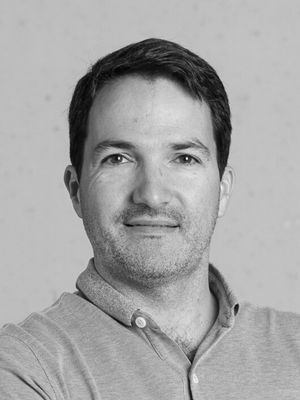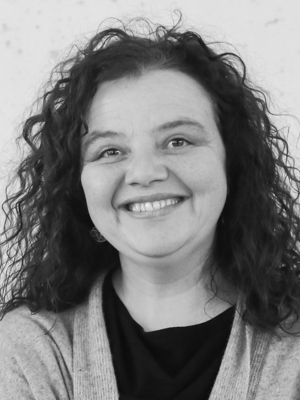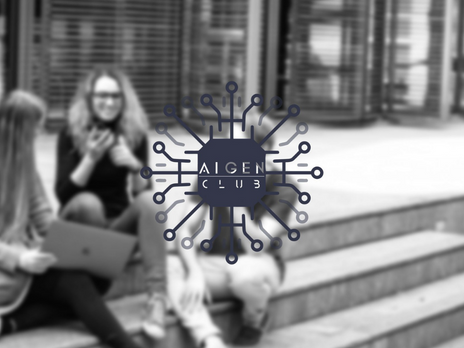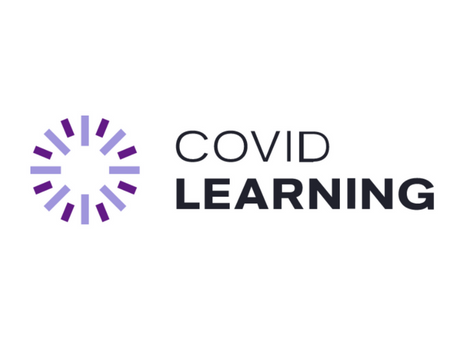
Lifelong learning and assessment in Health Professions
The Health Professions Education field is dynamic and productive generating high-quality evidence capable of guiding educational design and development. However, the translation of best evidence into meaningful and evidence-based practices is still a challenge. After 20 years of competency-based education (CBE) as the mainstay there is still uncertainty about the characteristics of lifelong learners and how to foster its practice in medical professionals. This is particularly relevant considering the fast change introduced by the digitalization of medical knowledge and the challenges imposed by remote medicine and global pandemics. The rapidly expanding world of machine learning and artificial intelligence has created ethical and professional conflicts with current medical practice, namely relating to data privacy. On the other hand, these same advances have opened new opportunities to medical education, by democratizing access to medical knowledge and allowing for personalized means of computer-based assessment (CBA).
Our research has two main lines:
– Factors affecting lifelong learning – EM/ICVS has implemented a longitudinal study (ELEMUM) of its students’ characteristics to explore factors affecting academic performance. These factors involve student engagement with curricular and extracurricular activities, aspects of personality such as empathy or how stress impacts on assessment performance. Conversely, EM/ICVS has a well-established continuous professional development program from pre- to post-graduate training including in specialty training in partnership with AlumniMedicina and B’ACIS.
– Best practices in assessment – Assessment is core in medical education both as facilitator of learning (formative) as well as a certification (summative). EM/ICVS is an early adopter of best practices in assessment such as CBE oriented tools (OSCE) and CBA. The need for better tools has led to the development of innovative tools (QuizOne®) that have generated spin-offs (iCognitus) that are currently used in several European and Brazilian medical schools. iCognitus has been an industrial partner in the Applied Health Sciences PhD program that has received 7 PhD students.
Recently, the University of Minho and the NBME® created a Master in Assessment in Health Professions Education (MAPS) to build an international community of practice committed to the translation of the latest evidence in the medical education into innovative assessment systems. It is expected that students engaging in MAPS will pursue research projects related to the current research lines and that a portion will progress to PhD programs in the area.
The strategic plan is aligned with the mission of EM/ICVS namely to improve healthcare of the population by means of training, research and innovation, creation of value and social accountability. We believe that our team is at a privileged position due to the pivotal position in the training of healthcare professionals and a strong relationship with all partners in the EM cluster (ICVS, 2CA, B’ACIS, P5).
Team Members


Carlos Fernando Collares

António Manuel Melo

Ana Mónica Pereira

Ana Raquel Lemos

Bruno Correia

Daniela Pereira

Filipe Falcão

Rita Matos Sousa
Team Members

José Miguel Pêgo
Principal Investigator
Team Coordinator

António Manuel Melo
Assistant Researcher

Ana Mónica Pereira
Postdoctoral Researcher

Ana Paula Salgueira
Postdoctoral Researcher

Ana Raquel Lemos
PhD Student

Bruno Correia
PhD Student

Daniela Pereira
PhD Student

Filipe Falcão
PhD Student
Projects
- José Miguel Pêgo
- The learning process of medical practice has specific characteristics that differ from other professions, namely the process of clinical reasoning and decision. This process progresses from the acquisition of knowledge in biomedical sciences (e.g. biochemistry, …
- José Miguel Pêgo
- Remote online assessment of knowledge has been increasing in recent years and has accelerated with the current COVID-19 pandemic situation. The ability to conduct tests virtually using technology offers excellent flexibility and provides…
- José Miguel Pêgo
- COVIDLearning proposes the combination of technological solutions that will allow identifying and accessing the latest scientific evidence, mapping and synthesizing it with training models in order to improve the quantity and quality of information available to health professionals on SAR-Cov-2 to COVID-19 in Portuguese…
- José Miguel Pêgo
- There are major differences between the quality of assessment of medical education in the EU. Most medical schools assess the knowledge of students by testing their knowledge at the end of each module to test facts. This promotes short term memory instead of testing the…
- José Miguel Pêgo
- Chronic stress is a growing problem in modern society. When left untreated, this condition can lead to health problems and affect students’ performance. This project aims to develop an information system for stress reduction based on mobile apps. To achieve this goal, we propose the validation of a wearable device …
- José Miguel Pêgo
- Virtual standardized patients (VSP) offer unique opportunities to simulate clinical scenarios in a risk-free environment, providing both faculty members and undergraduate medical students with a tool for developing clinical skills, vital for day-to-day clinical practice. However, …
Success Story
iCognitus was created as a spin-off of University of Minho and is our industrial partner being part of the EM/ICVS ecosystem and participated by B’ACIS. It is also a member of the Health Cluster Portugal, a network of institutions related to the improvement and provision of healthcare. iCognitus is specialized in the development of software for education. QuizOne is its main product and has been implemented in more than 20 universities and public institutions. iCognitus has a R&D department that has developed and implemented in the real-world setting. Through iCognitus our team as been able to participate in several research project using its extensive network and has been able to move the projects from the bench to a commercial product.
Through its connection with iCognitus and P5 (Ana Salgueira, José Miguel Pêgo) our team has developed and promoted products specifically aimed for the promotion of knowledge (CovidLearning) and best practices (ADS Antidepressivos por sintomas sistema de apoio à decisão médica). We aim to expand our offer by developing other tools namely algorithm-based clinical decision apps directed towards best practices in medicine.
Master in Assessment in Health Professions Education
Our master provides the knowledge, networking, and leadership skills to empower change agents to design and implement assessment-based educational projects at their home institutions with impact in their community. Our 2-year program consists of a short residential session (2 weeks) focused on project design and management followed by a structured distance-learning component that allows the participants to align the master´s activities with their regular occupation. We rely on an international group of teachers capable of facilitating the design of intervention projects in diverse areas of the Health Professions Education field. This program will have its first edition in 2022.
Selected Research Outputs
www.quiz.one
www.covid-learning.com
Master in Assessment in Health Professions Education (uminho.pt)
Falcão F, Costa P, Pêgo JM (2021) Feasibility Assurance: A Review of Automatic Item Generation in Medical Assessment. Advances in Health Sciences Education - in press
Pereira DSM, Pereira AM, Castanho TC, Silva GA, Falcão F, Costa P, Pêgo JM (2021) Applicability and Validation of the Reaction to Tests Scale (RTT) in a sample of Portuguese medical students. BMC Psychol. 2021 Oct 27;9(1):166. doi: 10.1186/s40359-021-00656-w.
Falcão F, Costa P, Pêgo JM. The Role of Technology in Assessment Quality Assurance Processes. In: Malau-Aduli B, Hays R, van der Vleuten C (eds): Understanding Assessment in Medical Education through Quality Assurance. New York: McGraw Hill, 2021
Sousa R, Costa P, Cerqueira JJ, Pêgo JM, Santa Cruz A, Oliveira e Silva A, Sousa N, Pereira VH. Translation, adaptation and validation of the Mini-Clinical Evaluation Exercise to the EU-Portuguese language. FEM 2020; 23(4):179-192
Pego JM, Palha JA, Scoles PV, Sousa N. Strategies for remote assessment of medical students at University of Minho. Med Educ. 2020 Nov;54(11):1074-1075. doi: 10.1111/medu.14322. Epub 2020 Aug 28.
Carneiro D, Novais P, Durães D, Pego JM, Sousa N (2019) Predicting completion time in high-stakes exams. Future Generation Computer Systems, 92, pp. 549-559.
Gonçalves F., Carneiro D., Pêgo J., Novais P. (2019) Monitoring Mental Stress Through Mouse Behaviour and Decision-Making Patterns. In: Novais P. et al. (eds) Ambient Intelligence – Software and Applications –, 9th International Symposium on Ambient Intelligence. ISAmI2018 2018. Advances in Intelligent Systems and Computing, vol 806. Springer, Cham. https://doi.org/10.1007/978-3-030-01746-0_5



Contact us
Phone: +351 253 604 967
Fax: +351 253 604 809
Email: icvs.sec@med.uminho.pt
Address
Life and Health Sciences
Research Institute (ICVS)
School of Medicine,
University of Minho,
Campus de Gualtar
4710-057 Braga
Portugal

Copyright ©2022 ICVS. All Rights Reserved



Copyright ©2022 ICVS. All Rights Reserved
Address
Life and Health Sciences
Research Institute (ICVS)
School of Medicine,
University of Minho,
Campus de Gualtar
4710-057 Braga
Portugal



Copyright ©2022 ICVS. All Rights Reserved
Address
Life and Health Sciences
Research Institute (ICVS)
School of Medicine,
University of Minho,
Campus de Gualtar
4710-057 Braga
Portugal







